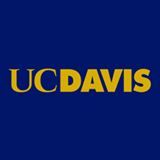预约演示
更新于:2025-05-07
High grade B-cell lymphoma with MYC and BCL2 and/or BCL6 rearrangements
高级别B细胞淋巴瘤伴 MYC 和 BCL2 和/或 BCL6 重排
更新于:2025-05-07
基本信息
别名 HGBL with MYC and BCL2 and/or BCL6 Rearrangements、High Grade B-Cell Lymphoma with MYC and BCL2 and/or BCL6 Rearrangements、High grade B-cell lymphoma with MYC and BCL2 and/or BCL6 rearrangements + [9] |
简介 High-grade B-cell lymphoma characterized by the abnormal rearrangement of MYC gene, BCL2 gene, and/or BCL6 gene. Patients with this type of lymphoma usually respond poorly to standard treatments and have a poor prognosis. |
关联
15
项与 高级别B细胞淋巴瘤伴 MYC 和 BCL2 和/或 BCL6 重排 相关的药物作用机制 CD20抑制剂 [+2] |
在研机构 |
在研适应症 |
非在研适应症- |
最高研发阶段批准上市 |
首次获批国家/地区 加拿大 |
首次获批日期2023-03-24 |
作用机制 CD19抑制剂 [+1] |
在研适应症 |
最高研发阶段批准上市 |
首次获批国家/地区 美国 |
首次获批日期2021-04-23 |
作用机制 CD79B抑制剂 [+1] |
原研机构 |
非在研适应症- |
最高研发阶段批准上市 |
首次获批国家/地区 美国 |
首次获批日期2019-06-10 |
25
项与 高级别B细胞淋巴瘤伴 MYC 和 BCL2 和/或 BCL6 重排 相关的临床试验NCT06905509
A Phase 2 Study of Epcoritamab (Epco) Plus Physician's Choice of Platinum-Containing Chemotherapy Pre-Autologous Hematopoietic Cell Transplantation (AutoHCT) Followed by Post-AutoHCT Epco Consolidation/ Maintenance in Relapsed/ Refractory Large B-Cell Lymphoma (R/R LBCL)
This phase II trial tests how well epcoritamab in combination with standard of care (SOC) platinum-based chemotherapy (rituximab, ifosfamide, carboplatin, etoposide [RICE], rituximab, cytarabine, dexamethasone, oxaliplatin or carboplatin RDHAP/X] or gemcitabine and oxaliplatin [Gem/Ox]) and autologous hematopoietic cell transplant (HCT) works in treating patients with large B-cell lymphoma (LBCL) that has come back after a period of improvement (relapsed) or that has not responded to previous treatment (refractory). Epcoritamab, a type of bispecific T-cell engager, binds to a protein called CD3, which is found on T cells (a type of white blood cell). It also binds to a protein called CD20, which is found on B cells (another type of white blood cell) and some lymphoma cells. This may help the immune system kill cancer cells. Carboplatin is in a class of medications known as platinum-containing compounds. It works in a way similar to the anticancer drug cisplatin, but may be better tolerated than cisplatin. Carboplatin works by killing, stopping or slowing the growth of cancer cells. Oxaliplatin is in a class of medications called platinum-containing antineoplastic agents. It damages the cell's deoxyribonucleic acid (DNA) and may kill cancer cells. Rituximab is a monoclonal antibody. It binds to a protein called CD20, which is found on B cells and some types of cancer cells. This may help the immune system kill cancer cells. Chemotherapy drugs, such as ifosfamide, etoposide phosphate, cytarabine, and gemcitabine, work in different ways to stop the growth of cancer cells, either by killing the cells, by stopping them from dividing, or by stopping them from spreading. Dexamethasone is in a class of medications called corticosteroids. It is used to reduce inflammation and lower the body's immune response to help lessen the side effects of chemotherapy drugs. An autologous HCT is a procedure in which blood-forming stem cells (cells from which all blood cells develop) are removed, stored, and later given back to the same person. Giving epcoritamab in combination with SOC platinum-based chemotherapy, such as RICE, RDHAP/X and Gem/Ox, and autologous HCT may kill more cancer cells in patients with relapsed or refractory LBCL.
开始日期2025-08-01 |
申办/合作机构 |
NCT06649812
A Phase 2 Study of Venetoclax, Ibrutinib, Prednisone, Obinutuzumab, and Revlimid (ViPOR) in Relapsed or Refractory CD10-Negative Diffuse-Large B-Cell Lymphoma (DLBCL) and High-Grade B-Cell Lymphoma With MYC and BCL2 Rearrangements (HGBCL-DH-BCL2)
This phase II trial tests how well venetoclax, ibrutinib, prednisone, obinutuzumab, and Revlimid® (ViPOR) works in treating patients with CD10 negative diffuse large B-cell lymphoma (DLBCL) and high-grade lymphoma with MYC and BCL2 rearrangements that has come back after a period of improvement (relapsed) and/or that has not responded to previous treatment (refractory). Venetoclax is in a class of medications called B-cell lymphoma-2 (BCL-2) inhibitors. It may stop the growth of cancer cells by blocking Bcl-2, a protein needed for cancer cell survival. Ibrutinib is in a class of medications called kinase inhibitors. It blocks a protein called BTK, which is present on B-cell (a type of white blood cells) cancers at abnormal levels. This may help keep cancer cells from growing and spreading. Anti-inflammatory drugs, such as prednisone lower the body's immune response and are used with other drugs in the treatment of some types of cancer. Obinutuzumab, a monoclonal antibody, binds to a protein called CD20, which is found on B cells and some types of leukemia and lymphoma cells. Obinutuzumab may block CD20 and help the immune system kill cancer cells. Revlimid, a type of anti-angiogenesis agent and a type of immunomodulating agent, may help the immune system kill abnormal blood cells or cancer cells. It may also prevent the growth of new blood vessels that cancers need to grow. ViPOR may be an effective treatment option for patients with relapsed and/or refractory CD10 negative DLBCL and high-grade B-cell lymphoma with MYC and BCL2 rearrangements.
开始日期2025-02-28 |
申办/合作机构 |
NCT06830031
A Phase 1 Study of C402-CD19-CAR, a Chimeric Antigen Receptor T Cell (CAR-T) Therapy Targeting CD19 in Subjects With Relapsed or Refractory Large B-cell Lymphoma
This study is to investigate the safety and tolerability of C402-CD19-CAR treatment in subjects with relapsed or refractory large B-cell lymphoma and further determine the recommended Phase 2 dose of C402-CD19-CAR.
开始日期2025-02-24 |
100 项与 高级别B细胞淋巴瘤伴 MYC 和 BCL2 和/或 BCL6 重排 相关的临床结果
登录后查看更多信息
100 项与 高级别B细胞淋巴瘤伴 MYC 和 BCL2 和/或 BCL6 重排 相关的转化医学
登录后查看更多信息
0 项与 高级别B细胞淋巴瘤伴 MYC 和 BCL2 和/或 BCL6 重排 相关的专利(医药)
登录后查看更多信息
1
项与 高级别B细胞淋巴瘤伴 MYC 和 BCL2 和/或 BCL6 重排 相关的文献(医药)2022-10-01·Clinical Lymphoma Myeloma and Leukemia
ABCL-227 Integral Transformation Index Indicating the Probability of High-Grade B-Cell Lymphoma Development From Transformed Low-Grade Lymphoma
Article
作者: Kovrigina, Alla ; Misyurina, Anna ; Misyurin, Vsevolod ; Magomedova, Aminat ; Babaeva, Fatima ; Kravchenko, Sergey ; Obukhova, Tatiana ; Sychevskaya, Ksenia
分析
对领域进行一次全面的分析。
登录
或

生物医药百科问答
全新生物医药AI Agent 覆盖科研全链路,让突破性发现快人一步
立即开始免费试用!
智慧芽新药情报库是智慧芽专为生命科学人士构建的基于AI的创新药情报平台,助您全方位提升您的研发与决策效率。
立即开始数据试用!
智慧芽新药库数据也通过智慧芽数据服务平台,以API或者数据包形式对外开放,助您更加充分利用智慧芽新药情报信息。
生物序列数据库
生物药研发创新
免费使用
化学结构数据库
小分子化药研发创新
免费使用




